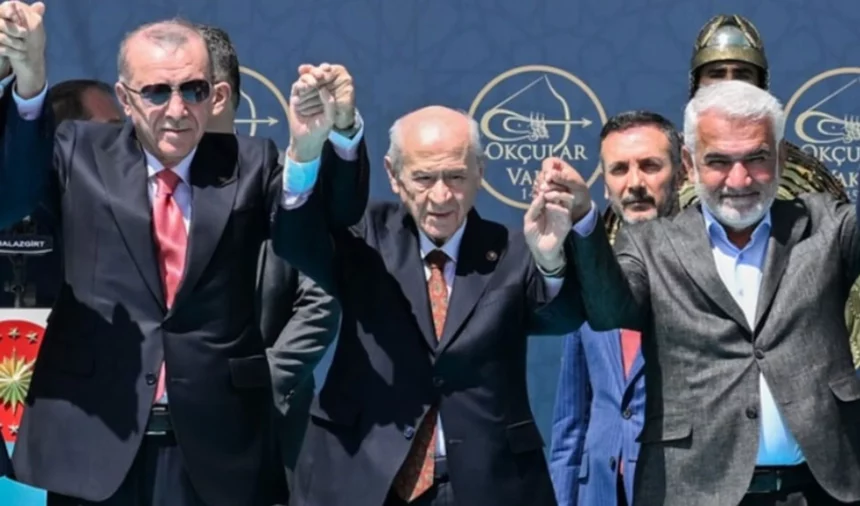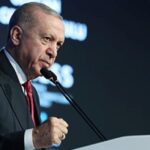The political landscape of Turkey has been significantly influenced by the Kurdish issue, a longstanding conflict that has persisted for decades and is deeply embedded in the nation’s socio-political fabric. Recent developments suggest that the Turkish government, under President Recep Tayyip Erdoğan, is implementing a dual strategy to reconcile the expectations of its nationalist base with increasing U.S. pressure to address the conflict. Turkey is trying to balance domestic political stability with external geopolitical pressures, especially from the United States, by sending mixed messages. This strategy is fundamentally rooted in Turkey’s conviction that, through U.S. involvement, the PKK (Kurdistan Workers’ Party) will ultimately disarm, and Kurdish political groups will agree to a roadmap set forth by Turkey.
Background and Recent Developments
The Kurdish peace process commenced in 2013 but came to an end in 2015 due to a collapse in negotiations and a rise in violence. This setback solidified the Turkish government’s hardline position towards Kurdish political groups, especially those linked to the PKK. In the subsequent years, the policies of the Turkish government were significantly shaped by nationalist sentiment, leading to a strong stance against Kurdish movements. Recent interactions between Devlet Bahçeli, the leader of the Nationalist Movement Party (MHP), and pro-Kurdish Peoples’ Equality and Democracy (DEM) Party members, along with Erdoğan’s calls for a “re-evaluation of historical events,” indicate a possible shift in strategy.
One of the most significant recent developments was Bahçeli’s handshake with DEM Party deputies during the October 1, 2024, opening of Parliament—a gesture that was previously unimaginable given Bahçeli’s strong opposition to Kurdish political movements. This handshake indicates a reconfiguration of the AKP-MHP alliance. Erdoğan’s support for Bahçeli’s outreach, coupled with his comments on keeping a “distance from violence” and advocating for democratic dialogue, suggests the potential for renewed peace initiatives. The combination of these actions and Turkey’s persistent economic and political difficulties indicates that the government might be gearing up for a more accommodating stance regarding the Kurdish issue.
Nationalist Expectations: A Strong Position Against the PKK
The Turkish government, especially under Erdoğan’s leadership and his partnership with the MHP, depends significantly on the backing of nationalist voters. These voters, especially those who are loyal to MHP leader Devlet Bahçeli, have consistently resisted any concessions to Kurdish groups, particularly the PKK, which is recognized as a terrorist organization by both Turkey and the United States. For the nationalist base, the PKK is seen as a threat to Turkey’s unity and sovereignty, and any peace process that seems to accommodate Kurdish demands could alienate this essential voter bloc.
In light of these concerns, Erdoğan’s senior advisors have dismissed any possibility of reinstating the peace process from 2013 to 2015. Mehmet Uçum, a close advisor to Erdoğan, openly rejected the idea of resuming peace talks with the PKK, claiming that such efforts belong to a “thing of the past.” This firm rejection aims to reassure the nationalist base that the government is steadfast in its commitment to combating terrorism and safeguarding Turkey’s territorial integrity.
The Turkish government has simultaneously utilized symbolic gestures to enhance its image while maintaining its nationalist position. Bahçeli’s handshake with DEM deputies exemplifies this strategy. Although Bahçeli presented the gesture as a representation of “brotherhood,” it does not indicate any significant policy change. It enables the government to convey a sense of openness to dialogue and national unity while upholding its hardline policies.
The United States as the Primary Catalyst for a New Peace Process
The possible revival of the Kurdish peace process arises alongside a growing U.S. engagement in Turkey’s regional security issues. The United States has significantly contributed to the support of Kurdish forces in Syria, especially the Syrian Democratic Forces (SDF). The influence of the U.S. over Kurdish forces, some of which are connected to the PKK, positions it as a crucial player in shaping any future peace efforts between Ankara and Kurdish groups
Turkish officials perceive U.S. pressure as a significant factor that may encourage the PKK to consider disarmament. Ankara holds the view that Washington’s wider geopolitical objectives—like ensuring regional stability, countering the influences of Russia and China, and preserving Turkey’s position as a buffer state between Europe and the Middle East—are in harmony with the aim of addressing the Kurdish conflict. Turkish officials anticipate that the U.S. will utilize its influence over Kurdish groups to facilitate negotiations, assisting Turkey in achieving a peace settlement that aligns with its own conditions.
The Path Forward: Turkey’s Strategy for Kurdish Inclusion
Central to Turkey’s dual strategy is the anticipation that, influenced by U.S. pressure, the PKK will lay down its arms and that Kurdish political factions, like the DEM Party, will agree to a framework set forth by Turkey. This roadmap is expected to encompass:
-Demilitarization of the PKK, possibly through integration with the Kurdish forces in Syria.
-Turkey’s agreement to Kurdish autonomy in Syria in return for the disarmament of the PKK through integration with the Syrian Democratic Forces (SDF).
-The release of Abdullah Öcalan, the incarcerated head of the PKK, along with all political prisoners, including Selahattin Demirtaş, Osman Kavala, and members of the Gülen movement.
-Extended cultural and political rights for the Kurdish population but without granting significant autonomy or federalism, which Turkey sees as a threat to its territorial integrity.
In this regard, Turkey’s approach to the Kurdish issue is rooted in its desire to retain control over the peace process and ensure that any settlement benefits Turkish national interests. By positioning itself as firm but open to reconciliation, Turkey aims to navigate the delicate balance between internal political stability and external diplomatic pressures.
Electoral Factors: Navigating Internal Politics
The mixed messaging from Turkey regarding the Kurdish issue also indicates electoral motivations. Erdoğan’s ruling coalition needs to maintain the backing of its nationalist base while also attracting moderate voters who might prefer peace and dialogue. The nationalist base, essential for Erdoğan’s political survival, is expected to resist any concessions to the PKK or Kurdish political movements. Nonetheless, symbolic gestures such as Bahçeli’s handshake with DEM deputies enable Erdoğan to present himself as a unifier, able to unite various segments of Turkish society.
There is speculation that these gestures may be politically motivated, especially concerning constitutional changes that could enable Erdoğan to pursue another term as president. Through symbolic acts of reconciliation, Erdoğan can expand his appeal while providing reassurance to nationalists that the government maintains a strong stance against terrorism, all without making substantial policy changes.
Conclusion: Managing Conflicting Demands
In summary, the conflicting signals from the Turkish government regarding the Kurdish issue illustrate a careful balancing act between appeasing nationalist voters and addressing U.S. demands. Although the Turkish government maintains its stance against a formal peace process with the PKK, it participates in symbolic gestures that indicate a desire to unify the nation. This strategy is based on Turkey’s conviction that the PKK will disarm and that Kurdish groups will embrace a peace process primarily shaped by Turkey, aided by U.S. involvement.
Turkey’s capacity to manage these conflicting pressures will be vital in influencing its domestic and foreign policies in the context of ongoing regional and global tensions. The outcome of this balancing act, whether it results in significant change or continues to convey mixed signals, hinges on Erdoğan’s capacity to navigate nationalist expectations while aligning with U.S. geopolitical interests.
By: NAT Editorial Team



